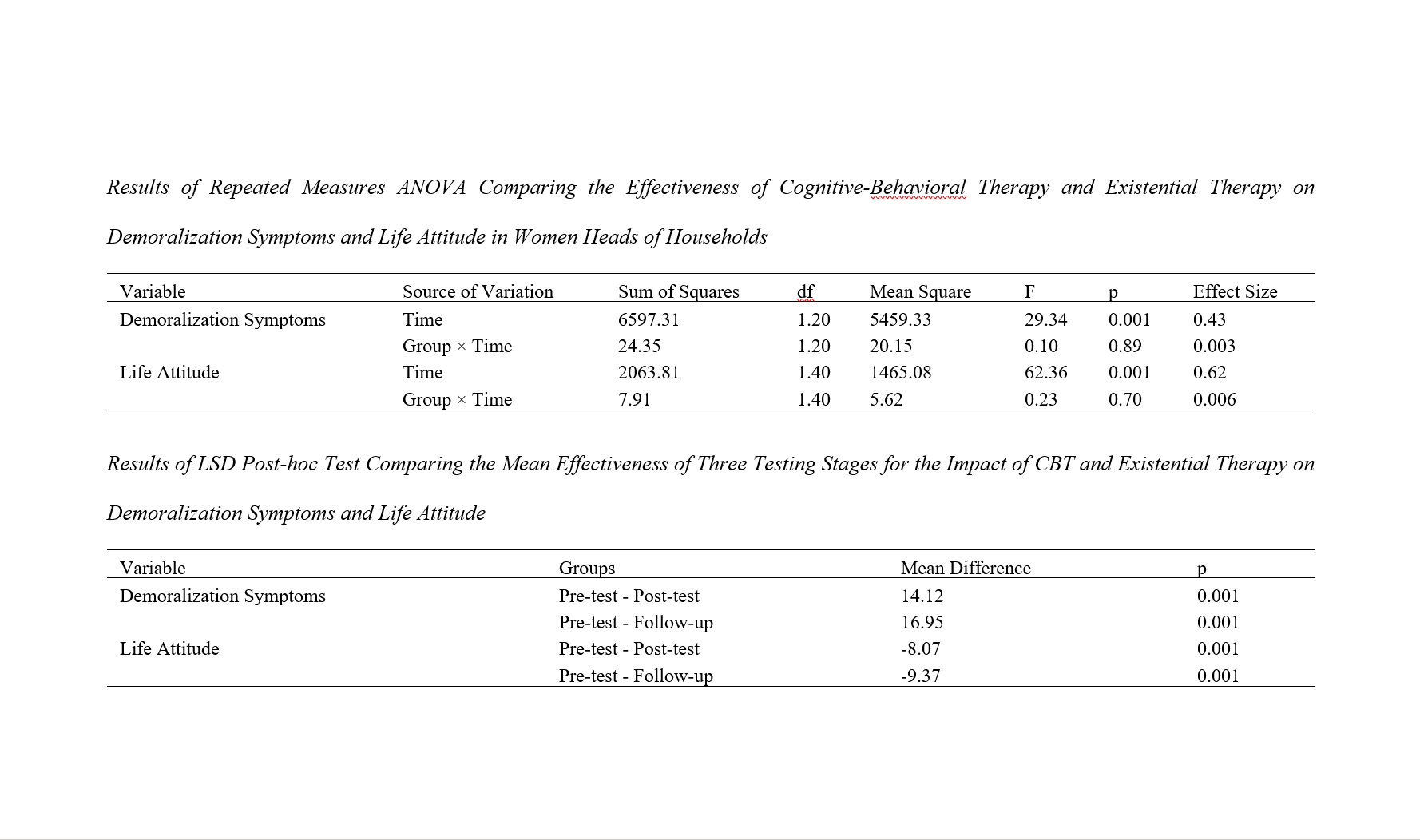Comparison of the Effectiveness of Cognitive-Behavioral Therapy and Existential Therapy on Symptoms of Demoralization and Life Attitudes in Women Heads of Households in Welfare
Keywords:
Women heads of households, cognitive-behavioral therapy, existential therapy, symptoms of demoralization, life attitudesAbstract
Objective: The aim of the study was to compare the effectiveness of cognitive-behavioral therapy (CBT) and existential therapy on symptoms of demoralization and life attitudes in women heads of households in welfare in the city of Rasht.
Methods: The research method was quasi-experimental with a pre-test, post-test, and follow-up design with two experimental groups and one control group. The statistical population included all women heads of households in the welfare organization of Rasht city (2159 individuals) in 2021. The sample size included 60 individuals who were randomly assigned to two experimental groups (20 individuals in the existential therapy group and 20 individuals in the cognitive-behavioral therapy group) and one control group (20 individuals). Then, each of the two experimental groups received 8 sessions of 90-minute group therapy. The cognitive-behavioral therapy was based on the cognitive-behavioral therapy protocol by Antony et al. (2013), and the existential therapy was based on the existential therapy protocol by Irvin Yalom (2016). The data collection tools included the Symptoms of Demoralization Questionnaire by Kissane et al. (2004) and the Life Attitudes Questionnaire by Battista (1973). Data analysis was performed using repeated measures ANOVA.
Findings: Based on the effect size values, the effectiveness of both cognitive-behavioral therapy and existential therapy on the demoralization symptoms variable was 43%, and on the life attitudes variable, it was 62%. This effectiveness was significant and persistent (according to the follow-up test results), and both therapies had a lasting impact on the dependent variables. In the variables of demoralization symptoms (F=29.34, p=0.001) and life attitudes (F=62.36, p=0.001).
Conclusion: The results showed that there was a significant difference between the three stages of pre-test, post-test, and follow-up in the variables of demoralization symptoms and life attitudes of women heads of households in the two experimental groups (cognitive-behavioral therapy and existential therapy), indicating the significant impact of both therapeutic methods on the research's dependent variables.
Downloads

Downloads
Additional Files
Published
Submitted
Revised
Accepted
Issue
Section
License

This work is licensed under a Creative Commons Attribution-NonCommercial 4.0 International License.




















